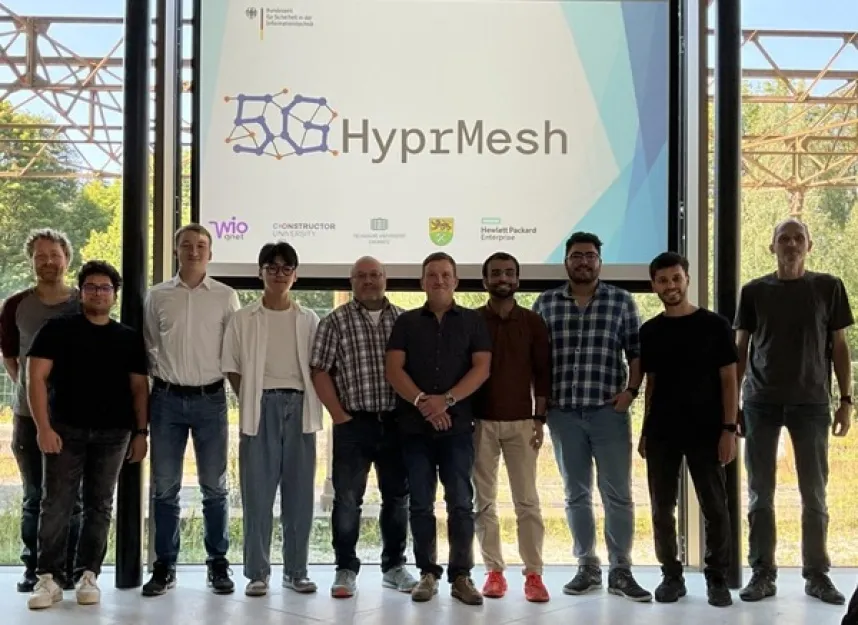Keeping critical services connected in the event of catastrophe - Constructor University's HyprMesh project celebrates official signing
Securing the reliable and efficient flow of data is key to keeping emergency services operational—especially in times of widespread crisis. The HyprMesh project, a collaboration between experts from Constructor University in Bremen and the Technical University of Chemnitz, aims to create a secure contingency network that increases the robustness of the current 5G network and thus ensures that key utilities, such as police, fire and other emergency services, remain in operation at all times. Funded by the Federal Government of Germany’s KoPa_45 initiative, HyprMesh project members recently came together to sign the consortium agreement and officially kick off the venture.
“The goal of the HyprMesh project is to establish a mesh-network that facilitates connectivity to the 5G network, thus making connectivity less vulnerable to failure and catastrophe,” said Giuseppe Thadeu Freitas de Abreu, Professor of Electrical Engineering at Constructor University in Bremen. Mesh networks are networks based on devices, or nodes, which connect and interact with one another in order to ensure the efficient flow of data.
As the number of connected devices on our streets continue to grow exponentially, connections per square kilometer are forecast to eclipse one million in the very near future. Thus, there is an acute need for a robust and reliable flow of data to maintain smart mobility offerings, plus other services that require access to a secure data network. “Deploying a backup that taps into the interconnectivity of both mobile networks and the growing fleet of smart mobility vehicles offers a much more cost-efficient alternative than, for example, putting in place a physical contingency network,” said Freitas de Abreu.
HyprMesh represents an exciting collaboration between federal and local governments, two prestigious universities and representatives from the private sector. The project was greenlit by Germany’s Federal Agency for Public Safety Digital Radio and Federal Office for Information Security to receive funding as part of the KoPa_45 initiative. A coronavirus economic stimulus package, KoPa_45 has EUR 60m in funds to allocate to projects that “promote innovative solutions for mission-critical broadband networks,” according to the official Government homepage.
HyprMesh officially kicked off with an online meeting in August 2024 attended by representatives from the Federal Office of Information Security and the German Aerospace Agency (DLR), as well as officials from the town of Annaberg-Buchholz. Recently, the project team convened in person for the first time to officially sign the consortium agreement, discuss goals and lay out the next steps. HyprMesh will reconvene in November for an in-depth panel discussion with all project stakeholders to exchange insights and define concrete next steps.
Questions answered by:
Giuseppe Thadeu Freutas de Abreu | Professor of Electrical Engineering
gabreu@constructor.university
